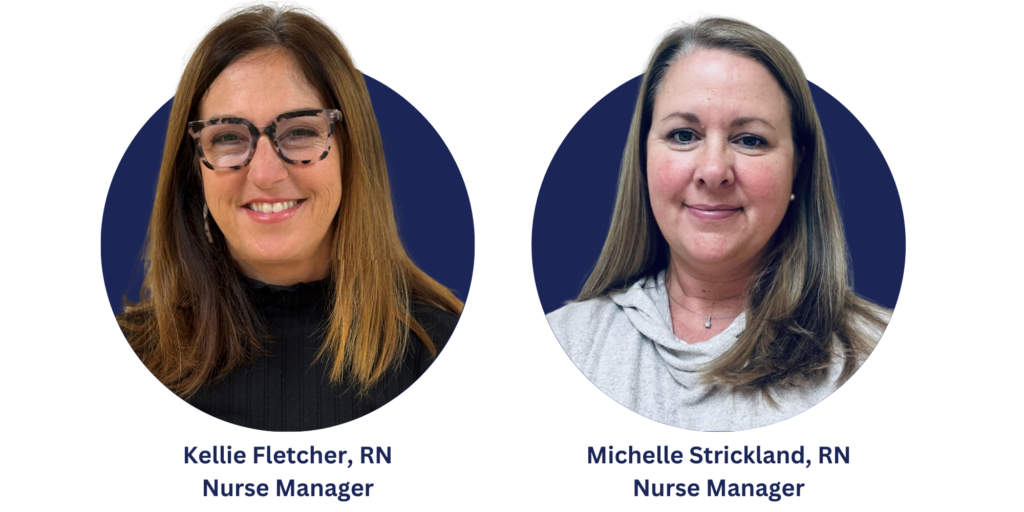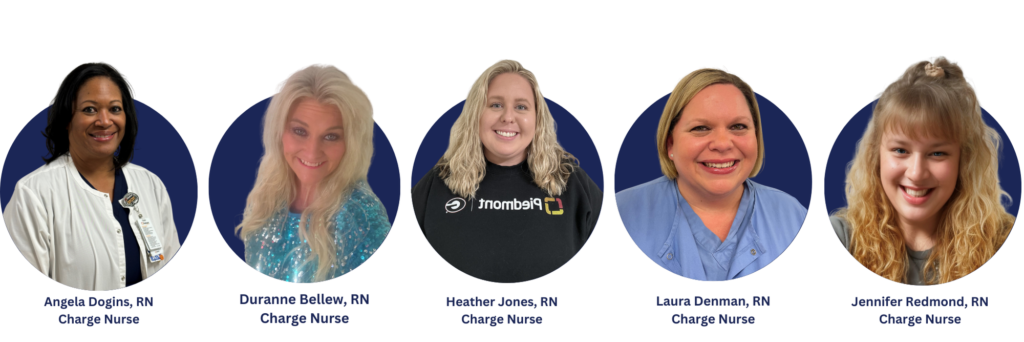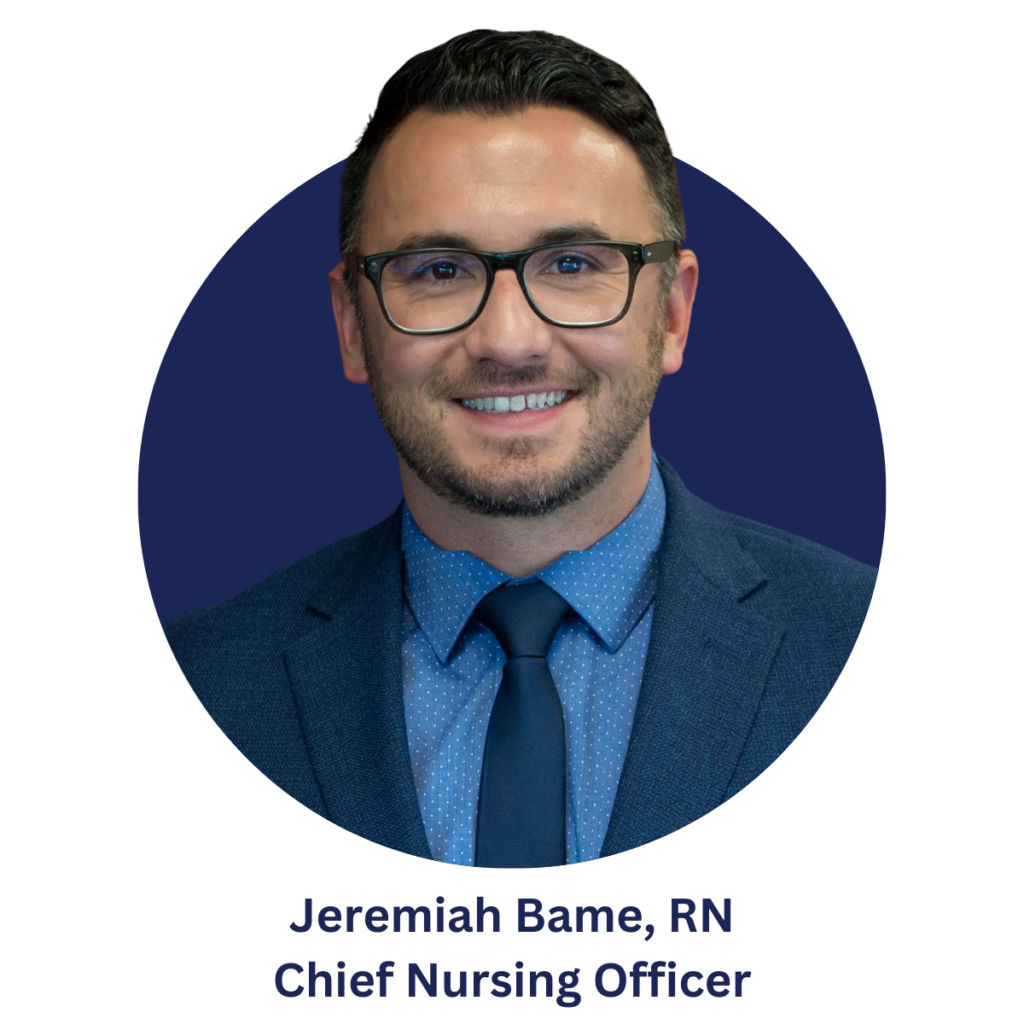Piedmont Athens Regional Medical Center is a 427-bed non-profit hospital and regional referral center, serving Athens and the 17 surrounding counties. They boast a Level II trauma center and Level III neonatal intensive care unit (NICU) and treat more than 80,000 patients each year in the emergency department. Piedmont Athens is a critical part of the larger Piedmont Healthcare system, which cares for more than 4 million patients at its 25 hospitals, 75 urgent care centers, 25 QuickCare locations, and 1,875 clinics. Piedmont has been recognized as one of America’s Greatest Workplaces for Women as well as Diversity.
Committed to Growing Nurse Leaders
Jeremiah Bame, CNO, realized that Piedmont Athens could benefit from a formal charge nurse role when he arrived two years ago. He also knew that Charge Nurse-specific training would be critical in elevating this formal role.
“Piedmont is committed to growing and developing our leaders, and we want people to get training early on in their leadership journey”, says Jeremiah. Catalyst Learning’s NCharge® program fits the bill because it provides “goal-directed training at the front-line leadership level that is producing quantifiable outcomes and will pay dividends to our nurses throughout their careers.”
Celebrating Wins
Piedmont Athens has already seen positive outcomes from Catalyst Learning’s NCharge programs. Jeremiah Bame has observed increased engagement among the charge nurses, particularly their involvement in unit-based improvements and hospital-wide safety initiatives. Kellie Fletcher, RN, is a Nurse Manager in Labor & Delivery. Kellie has seen tremendous growth in the charge nurses’ confidence in leading and communicating. Not only are the charges nurses engaged in their work, “they have really worked on staff engagement”, raves Kellie.

Nurse Managers across Piedmont Athens have been able to delegate more leadership tasks and challenges to their charge nurses after the formal training with the NCharge program. Michelle Strickland, RN, is a Nurse Manager of Pediatrics/Infusion Center. Michelle has also seen charge nurses’ confidence grow and shared that she has seen specific improvements in the charge nurses “addressing conflict and coaching staff…[and] decision making”.
Boosting Confidence in Leading

Jennifer Redmond, RN, a charge nurse in the orthopedics department, loved the courses she attended. “Everything I learned I was able to bring back to the unit and put into practice and it improved my skills and effectiveness 100%. Every shift now I am using something I learned from NCharge! It completely changed how I charged and for the better. When having to address an issue, I utilize techniques taught to most effectively resolve an issue at the lowest level. It has been completely life changing in terms of my work life and role as charge”.
Duranne Bellow, RN, a charge nurse in Oncology shared how the NCharge program “helped me understand a little more about why I am responsible for printing sheets at midnight about Foley’s and central lines.”
“It made me realize that it is my part in helping make sure we are monitoring and hopefully reducing the number of hospital acquired infections; this helps reduce costs in the hospital. It was interesting seeing the numbers and how much these infections can cost our hospital”
Duranne also shared how the NCharge program helped address a conflict between a technician and a nurse. Duranne brought them together and talked through the issue to resolve it before “drama began in the department”.
Both Laura Denman, RN, a charge nurse in Labor & Delivery and Heather Jones, RN, a charge nurse on the Observation Unit, shared how the NCharge program helped them communicate more effectively among the multigenerational workforces on their units. Laura noted that she enjoyed “learning how to effectively communicate and motivate high performance across multiple generations, which is most important with today’s extended life expectancy leading employees to work longer before retirement.” Heather and Laura agree with their fellow charge nurses that the skills they learned increased their confidence in leading their staff, communicating and resolving issues effectively. Heather shared that the NCharge program helped her to “think outside the box”.
A charge nurse on the Neuroscience unit, Angela Dogins, RN, shared how she is using the SOAR guidelines for delivering effective feedback. “Prior to providing feedback, it is my goal to communicate with the staff about the best available time to meet with them. During our meeting time, I review the findings of my observations [related to chart reviews]. I welcome feedback and ask for a response as it relates to any missing information discovered in the chart reviews. Afterwards, we discuss what possible strategies can be implemented to improve areas of concern. Once the staff member improves in these areas, I follow up with some sort of recognition”.
Realizing the Vision

Jeremiah Bame reflects on the transformation he’s seen since formalizing the charge nurse role. “I see our charge nurses taking initiative and engaging at a different level throughout the hospital. The involvement and ownership at the department level and across the facility has improved as well. Two have already advanced into Clinical Manager roles.” The NCharge program gives frontline staff the opportunity to strengthen their leadership skills and engage more effectively with other care team members, creating a more positive experience for all. These charge nurses are rising as leaders, bringing confidence and renewed commitment to work every day. They’re building skills and shaping a brighter future for their teams and patients alike.
